Geese are kept as guard animals for their keen sense of hearing and ability to chase away wild cats from agricultural lands. They are also poultry that is raised and sold commercially for their feathers, meat, foie gras, and down.
They’re treated as exotic meat eaten during extra special occasions compared to turkeys which are the more popular poultry choice and considered holiday staples.
So, do geese taste better than turkeys? As you have probably suspected this depends on the person. Goose meat resembles the taste and texture of other white meat, but it has a distinct, strong flavor that almost tastes like roasted beef. Moreover, turkeys are healthier choices because they have less fat content.
Read further this article to know more about goose meat, what they taste like, how they are compared to other poultry meat in terms of nutrition, how they’re cooked, and more interesting facts!
What Does Goose Meat Taste Like?
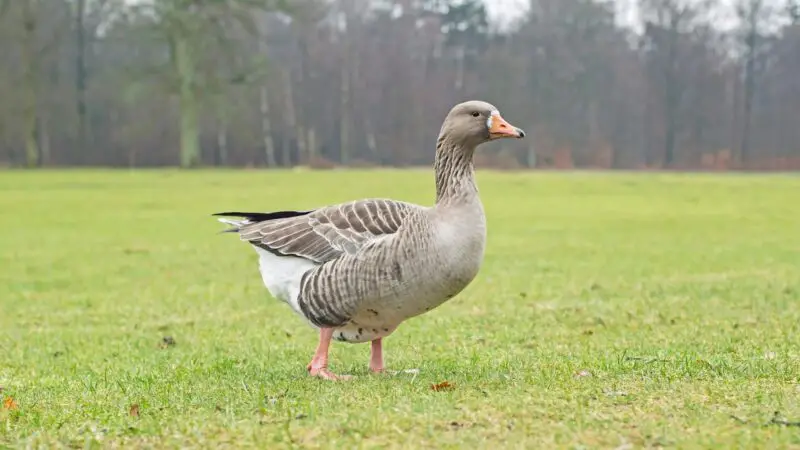
It has a taste and texture resembling that of other poultry meat such as chicken or turkey but has a stronger flavor, almost roasted beef-like.
Goose meat might not be suitable for everyone’s palate as it is an acquired taste. However, poultry enthusiasts will like them since they’re interchangeable with other types of poultry in recipes.
Goose Meat Nutrition vs. Other Poultry
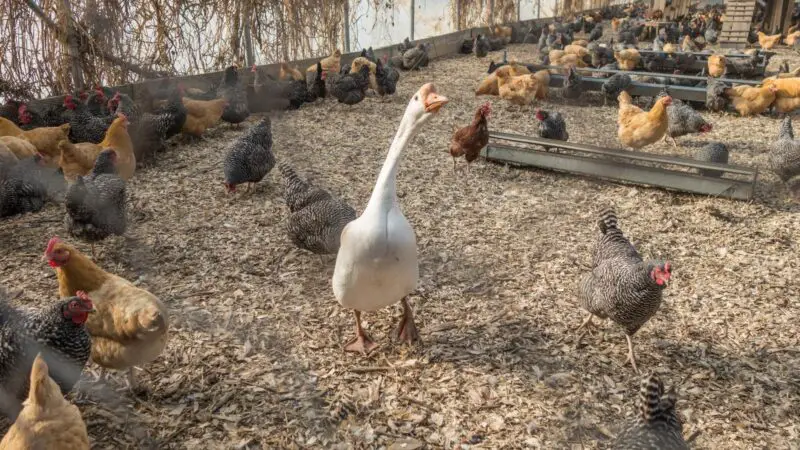
Refer to the table below for the basic nutritional facts of various types of cooked poultry:
| Nutritional Information | Goose Meat | Chicken Meat | Turkey Meat | Duck Meat | Squab (Pigeon) Meat | Quail Meat |
| Calories (kcal) | 573.4 | 576.64 | 353.6 | 201 | 356 | 257 |
| Protein (g) | 47.3 | 60.57 | 60.99 | 23.48 | 43.92 | 28.5 |
| Total lipid fat (g) | 41.21 | 32.37 | 10.34 | 11.2 | 13 | 14.1 |
| Total fatty acids (g) | 36.93 | 28.96 | 8.52 | 9.3 | 18.82 | 453 |
| Cholesterol (mg) | 171.08 | 237.44 | 158.08 | 89 | 226 | 116 |
| Potassium (mg) | 618.52 | 502.44 | 619.84 | 252 | 595 | 290 |
| Calcium (mg) | 24.44 | 36.04 | 52 | 12 | 33 | 20 |
| Sodium (mg) | 131.6 | 182.32 | 145.6 | 65 | 128 | 214 |
| Vitamins A (IU) B-6 (mg) B-12 (mcg) C (mg) E (mg) K (mcg) | 131.6 0.7 0.77 0 3.27 9.59 | 1751.12 0.89 2.35 1.06 1.24 13 | 230 0.96 0.77 0.1 0.69 7.7 | 77 0.25 0.4 0 0.7 3.8 | 233 0.4 0.4 2.9 0.0 85.6 | 193 0.62 0 2.3 0.7 4.2 |
How Healthy Is Goose Meat?
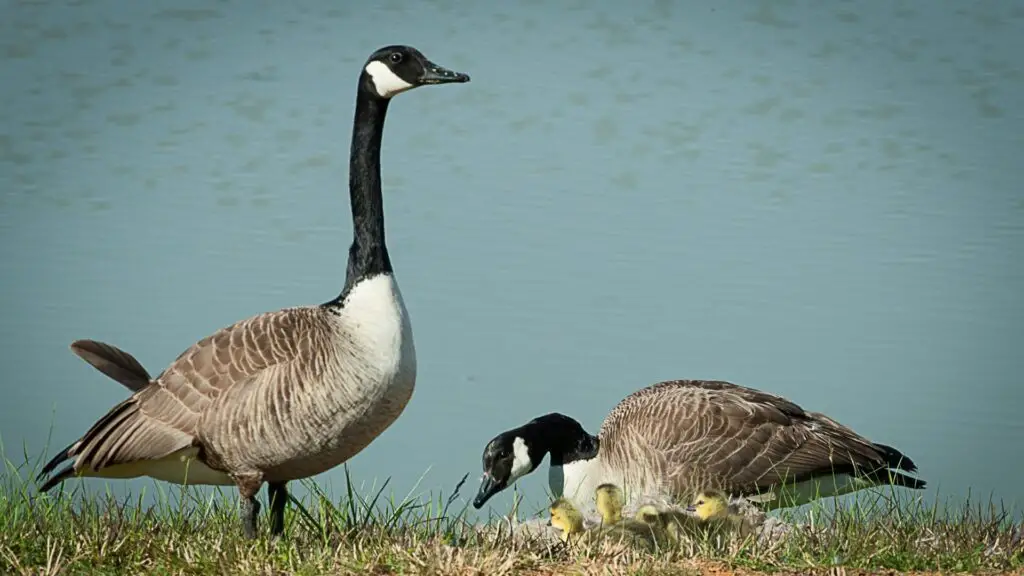
Goose meat has the healthiest animal fats, according to this study, due to its high concentration of unsaturated fatty acids and essential amino acids.
It is an excellent source of the following vitamins:
- Vitamin B-6 plays a role in reducing the risk of cancer, heart disease, and stroke.
- Vitamin B-12 is a necessary vitamin for the formation of red blood cells and regulating nerve and brain function.
- Vitamin E which are antioxidants that remove and protect against free radicals that can damage cells.
- Vitamin K helps the creation of proteins necessary for building bones and blood clotting.
Aside from that, they’re also sources of protein and riboflavin, which is important for growth and development, especially in children, as well as repairing and maintaining cells.
Is Turkey Healthier Than Goose?
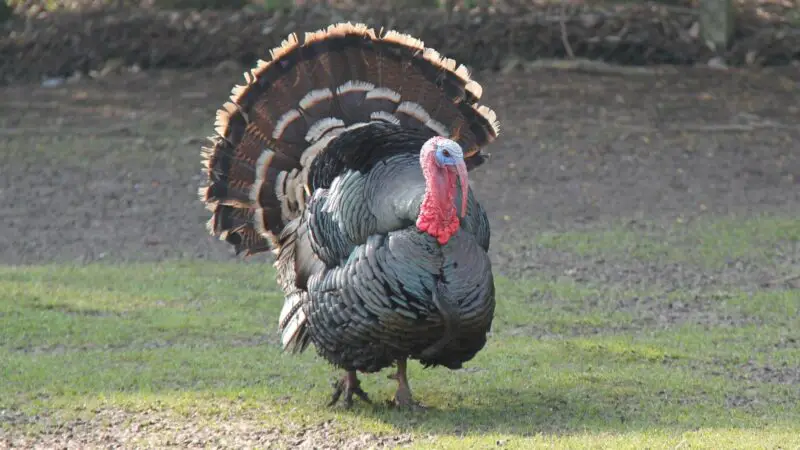
Turkey is much healthier than a goose. Goose meat contains more calories and fat content, which, if consumed an excessive amount, may cause negative effects on one’s health. However, this precaution should be exercised on all types of meat.
Generally, they’re both healthier if consumed in moderation and cooked in a healthy way (e.g. less sugar and additives, more greens).
Why Is Goose So Expensive?
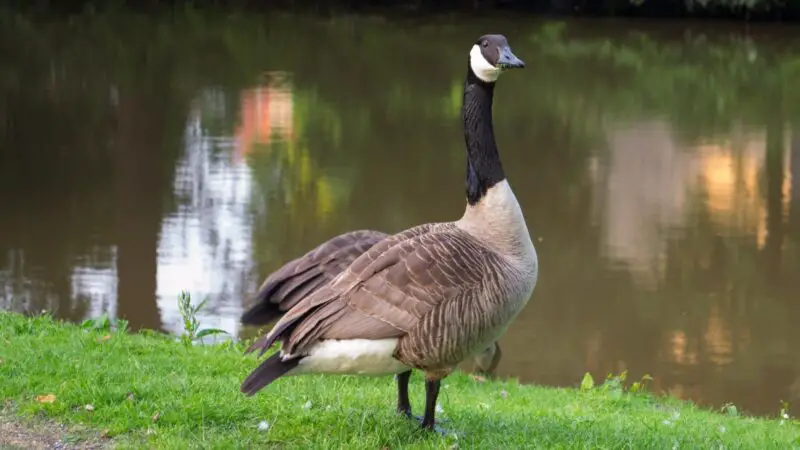
Goose is expensive because the demand for its meat is relatively low compared to other poultry, especially chickens, which have a steady demand all year round, and turkeys which are popular during the holiday season.
In fact, importing goose meat is a common trade activity as it is generally regarded as exotic meat. According to the OEC, the United States spent 260 million dollars on fowl imports (including goose) in 2020, comprising 3.16% of the total world imports for fowl.
Geese are also difficult to raise. For example, according to a clinical associate professor, geese must be housed in grassy yards with a swimming area present, or else they can potentially develop serious health problems such as bone infections.
How Do You Cook a Goose?
Harvesting
If you’re raising geese for meat and they’re finally ready for harvest, choose those that look and act healthy. Wear protective gloves when dressing and butchering the bird to prevent contracting Type E botulism.
Avoid direct contact with the meat and in the removal and disposal of its intestines. Wash your hands and any equipment and kitchen surfaces used during this step.
Storing
When you don’t raise geese and instead choose to purchase geese from your local supermarkets or grocery stores, make sure you store them well if you don’t plan on cooking them right ahead.
Place them in the refrigerator at temperatures below 40°F for two days. If you’re planning on using it at a much later time, freeze it instead at a temperature of 0°F. This method can keep goose meat fresh for up to 6 months.
Preparing
Remember to thaw the goose at room temperature (or in the refrigerator when you choose to freeze it) before preparing them for cooking.
Goose meat has the tendency to cook up dry, which makes it a more appropriate option for soups and stews or when baking inside an oven bag. If you want the goose meat in a stir fry or filet, it’s recommended to marinate the meat first.
Use tongs instead of meat forks when preparing the goose. Remove its fat and innards using a small knife or skewer.
When cutting the meat, let it rest for about 5 minutes before slicing it against the grain to ensure maximum tenderness. When you want to use the entire bird, pour 2 to 4 kettles of boiling water to tenderize the meat.
Cooking
- When roasting, stuff the goose with your choice of ingredients. Bay leaves, onions, and a halved orange make excellent stuffing. Afterward, rub oil and season with pepper and salt before wrapping in foil and cooking for 1 hour and 30 minutes at 375°F in the oven until golden brown.
- When frying, it’s best if you purchase ready-to-cook goose tenders and dress them in a marinade, preferably in Italian dressing or fruit vinaigrette, before cooking until crispy and golden brown. You can also create the dip of your choice.
Frequently Asked Questions
Can You Eat Canadian Geese?
You can eat Canadian geese. However, you’ll find it difficult to find one as it’s considered illegal in the United States to capture, buy, or sell Canadian geese according to the Migratory Bird Treaty Act.
Can You Eat Goose Medium Rare?
This goose’s farming, raising, and maintenance conditions prevent bacteria, such as salmonella, from spreading. Hence, it is safe to eat medium rare goose.
What Does Goose Like to Eat?
Geese primarily eat leaves, seeds, berries, grass, roots, and algae that should have high amounts of protein and energy to maintain good health and growth. They occasionally feed on aquatic invertebrates, fish, insects, mollusks, and crustaceans.
Magpie geese eat large amounts of wild rice, swamp grass seeds, and plant bulbs, while Egyptian geese can eat worms and frogs.
Which Has More Fat Duck or Goose?
Goose has significantly more fat content than ducks, both in total lipid fats and fatty acids, thanks to their herbivorous diets.
Goose has a distinctly strong, roasted beef-like flavor not everyone could enjoy since it is an acquired taste. Goose meat, however, is an excellent source of vitamins and protein. They’re expensive due to relatively low demand, the farming conditions they need to be raised in, and because they’re considered exotic meat.
